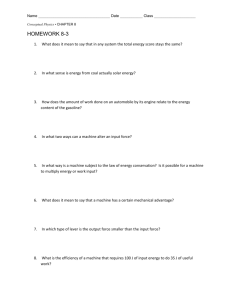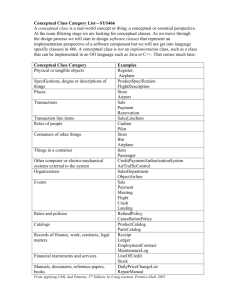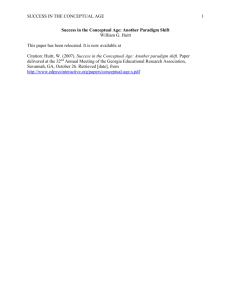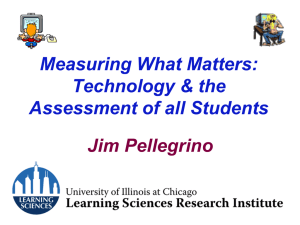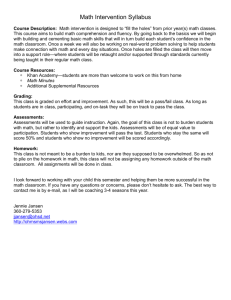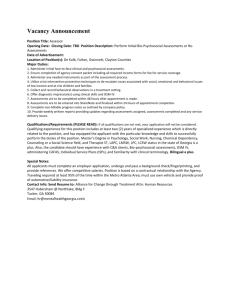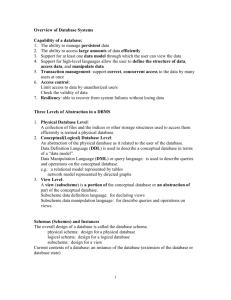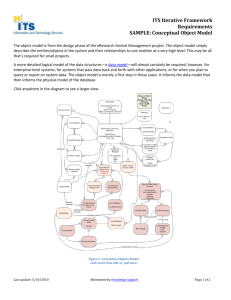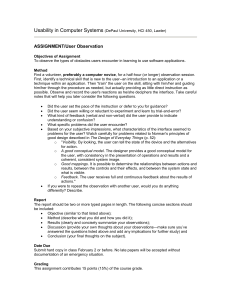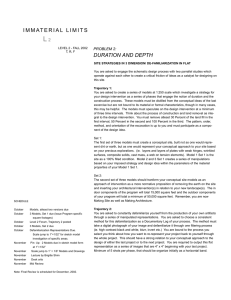Lecturette 1 (POWERPOINT) - The Equity Alliance at ASU
advertisement
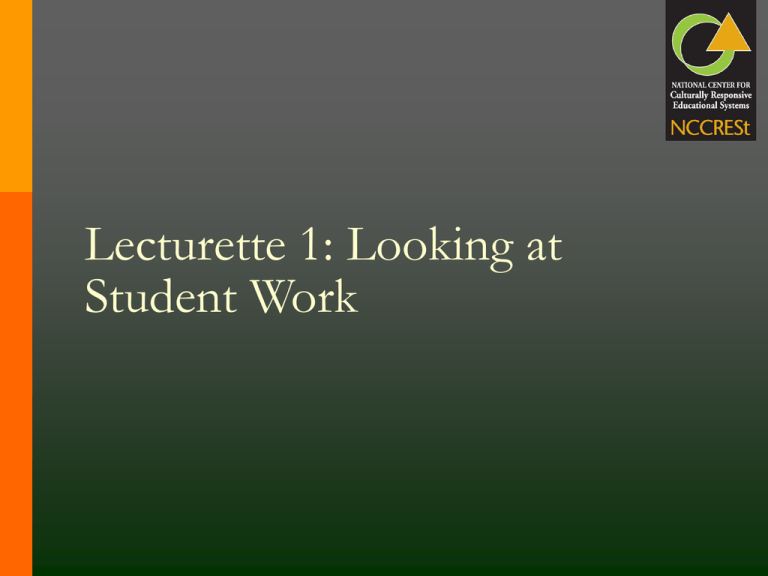
Lecturette 1: Looking at Student Work Jeffrey Watson explains… “Using data is [repetitive].” Educators must have the time and tools to: cycle through steps involving inquiry, acquire data, manage, analyze, apply and evaluate. (Johnson, J.H. Data-driven School Improvement. ERIC Clearinghouse on Educational Management, 1997) Conclusions reached through data analysis should be based on multiple sources and measures What to multiple sources reveal about student learning and performance? How to Analyze Multiple Sources of Data for Patterns Describe Interpret Reflect Are the results expected? Why or why not? Are there any surprises? What results are unexpected? What anomalies exist? What areas did the students perform best in? What weaknesses are evident? What questions are raised from the data? How good is good enough? Of what kinds of student errors do assessments inform us? Input Output Conceptual Of what kinds of student errors do assessments inform us? Input Output Conceptual Of what kinds of student errors do assessments inform us? Input Output Conceptual Of what kinds of student errors do assessments inform us? Input Output Conceptual Identifying Patterns in Data
